TODAY’S SPECIAL: Esther 8:11-17
TO CHEW ON: "In every province and in every city to which the edict of the king came, there was joy and gladness among the Jews, with feasting and celebrating..." Esther 8:17
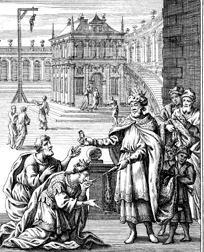
Quickly things turned around in Susa. Haman was gone. When Esther told the king that Mordecai was her cousin, he gave Mordecai the job Haman had before. But the king’s law still stood. The Jews were still in danger.
Again Esther went to the king. “Please spare the life of my people,” she pleaded.
“My law from before can’t be overturned,” the king told her. “But you can write another one.”
So Mordecai called together the secretaries. They wrote a new command. It said that the Jewish people could now fight back to defend themselves from anyone who attacked them. Couriers on horses raced to the farthest parts of the land to post the new law.
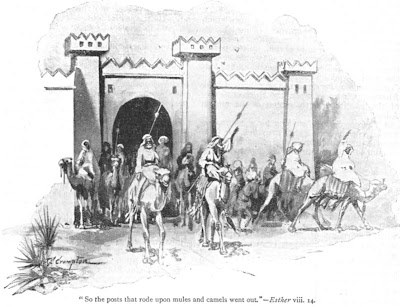
When the people of Susa heard the news, there was great happiness. On the day that Haman had picked for the slaughter, Jews everywhere fought against their attackers and were successful. Now instead of that day being a day of death and weeping, it became a day of feasting and celebrating.
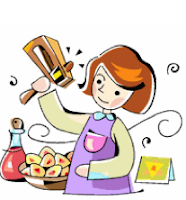
I’m sure Esther and Mordecai wondered, on those first grim days after Haman passed his law, if they would ever feel like smiling again. But with God’s help everything changed. Instead of tears, a big celebration ended the story.
We too may be in sad times. We may wonder if and how things will ever get better. Like Esther and Mordecai, let’s pray to God about our problems. The God of Esther and Mordecai is our God too. He can still turn sadness into a celebration!
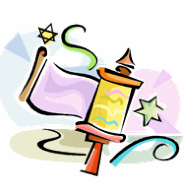
PRAYER: Dear God, I bring my problem of __________ to You. Please change my sadness into celebration. Amen.
MORE: Purim
Every year after that the Jews celebrated the day when God saved them from their enemies through Queen Esther. They called it the Feast of Purim.

The Jewish people still celebrate the Feast of Purim today. Here are some things they do on that day.
1. They read the story of Esther from the Hegillah (the Scroll). They cheer whenever Esther’s name is mentioned, boo at Haman’s name and wave graggers or noisemakers. They also act out the story in plays.
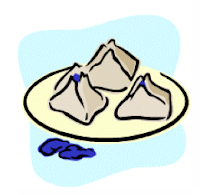
2. They wear costumes, disguises and masks to remind them of how Esther had to hide the fact that she was Jewish.
3. They send gifts to each other and the poor. They also invite people to join them in a special Purim meal.
4. They make special food. One treat is called Hamantaschen (Haman’s Hat). It is a three-cornered pastry filled with poppy seeds or prunes.